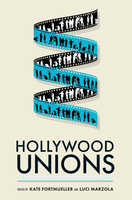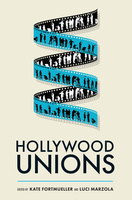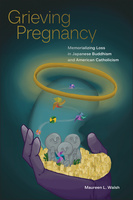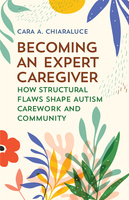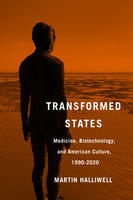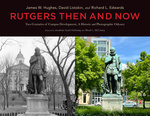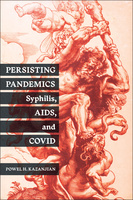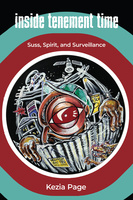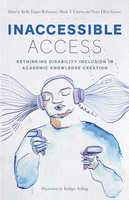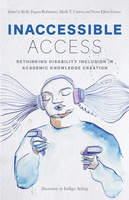Hollywood Unions
Who makes films and television shows? How do those people make a living in Hollywood? Hollywood Unions tells the stories of the unions and guilds that have organized and negotiate on behalf of motion picture and television labor: the DGA, IATSE, SAG-AFTRA, and WGA.
Hollywood Unions
Who makes films and television shows? How do those people make a living in Hollywood? Hollywood Unions tells the stories of the unions and guilds that have organized and negotiate on behalf of motion picture and television labor: the DGA, IATSE, SAG-AFTRA, and WGA.
Grieving Pregnancy
Memorializing Loss in Japanese Buddhism and American Catholicism
Grieving Pregnancy compares contemporary American Catholic and Japanese Buddhist memorial practices focused on miscarriage, stillbirth, and abortion. Maureen L. Walsh demonstrates that while the memorial practices confront the same basic problem—that is, pregnancy loss—they conceive of the problem in different terms, and as a result, propose distinct responses to it.
God's Waiting Room
Racial Reckoning at Life's End
A ghost story rich in mystery and life lessons, God's Waiting Room takes readers on a day-long tour of a tropical nursing home to hear stories of older white people and the younger Black nurses who care for them, showing how people formerly primed to be enemies find grace despite the odds.
Becoming an Expert Caregiver
How Structural Flaws Shape Autism Carework and Community
This book features the voices of 50 primary caregivers of autistic and neurodivergent children who illuminate the process through which lay women become expert caregivers to provide the best care for their children. Expert caregiving captures an intensification of traditional family carework – meeting dependents’ financial, emotional, and physical needs – that transcends the walls of one’s private home and family and challenges the strict boundaries between many worlds: lay and professional, family and work, private and public, medical and social, and individual and society.
Transformed States
Medicine, Biotechnology, and American Culture, 1990–2020
Transformed States offers a timely history of the politics, ethics, medical applications and cultural representations of the biotechnological revolution, from the Human Genome Project to the Covid-19 pandemic. In exploring the entanglements of mental and physical health in an age of biotechnology, it views the post-Cold War 1990s as the horizon for understanding the intersection of technoscience and culture in the early twenty-first century.
Rutgers Then and Now
Two Centuries of Campus Development: A Historic and Photographic Odyssey
Rutgers University has come a long way since it was granted a royal charter in 1766. It migrated from a parsonage in Somerville, to New Brunswick-sited The Sign of the Red Lion tavern, to stately Old Queens, expanding northward along College Avenue, and beyond. Replete with more than 500 campus images, Rutgers, Then and Now offers stunning pictorial and historical evidence of what it was then, side by side, with what it is today, a vital hub for research and beloved home for students.
Post-Crisis Leadership
Resilience, Renewal, and Reinvention in the Aftermath of Disruption
Crisis leadership—which takes account of leading before, during, and after crisis—is an imperative for leaders at all levels. Often relegated as an afterthought in crisis scholarship and practice, the ability to navigate the post-crisis period can distinguish highly effective leaders and organizations. This book introduces a research-informed framework for this critical, and often neglected, phase of crisis leadership.
Persisting Pandemics
Syphilis, AIDS, and COVID
Syphilis, AIDS, and COVID disprove any belief that scientific discoveries have ended the period of acute epidemic diseases that once defined 19th century life and replaced them with chronic cardiovascular diseases and cancers. Today, we cope with a greater array of epidemics than those who lived during the 19th century, even though we have the biomedical means to control them. Our cumulative experience with epidemic diseases, together with our attempts to eliminate them, remains a continued component of our existence.
Making the Human
Race, Allegory, and Asian Americans
Making the Human grapples with the interactions between narrative, materiality, and Asian American racialization. Examining contemporary debates over the role of Asian Americans in affirmative action, media representation, police brutality, and public health discourses, Sugino argues media and cultural narratives about Asian Americans shape contemporary ideas about humanity, justice, family, and nation in ways that naturalize hierarchy.
Lifting the Shadow
Reshaping Memory, Race, and Slavery in U.S. Museums
Lifting the Shadow examines how the National Museum of African American History and Culture, Montgomery’s Legacy Museum and Tulsa’s Greenwood Rising are challenging the national narrative on slavery and race by placing racial oppression at the center of American history and linking historical slavery to contemporary racial injustice.
Inside Tenement Time
Suss, Spirit, and Surveillance
Inside Tenement Time is a study of Jamaican literary and cultural texts presenting surveillance in the Caribbean. The project introduces two Afro-Indigenous variations on surveillance--sussveillance and spiritveillance--as exemplars of vernacular arts and shows that Caribbean hegemonies are flexible. The book reads the Smile Jamaica concert (1976) and the Tivoli Incursion (2010) as states of high surveillance emergency.
Inaccessible Access
Rethinking Disability Inclusion in Academic Knowledge Creation
Inaccessible Access ethnographically addresses barriers to inclusion within knowledge-making. It focuses on the social, environmental, communicative, and epistemological barriers that people with disabilities confront and embody throughout the course of their learning, living and in the specific context of their Higher Education Institutions and in research.
Inaccessible Access
Rethinking Disability Inclusion in Academic Knowledge Creation
Inaccessible Access ethnographically addresses barriers to inclusion within knowledge-making. It focuses on the social, environmental, communicative, and epistemological barriers that people with disabilities confront and embody throughout the course of their learning, living and in the specific context of their Higher Education Institutions and in research.
Cinema under National Reconstruction
State Censorship and South Korea’s Cold War Film Culture
Drawing upon primary documents from the Korean Film Archive’s digitized database and framing South Korean film censorship from a transnational perspective, Cinema Under National Reconstruction redefines censorship as a productive feedback system where both state regulators and filmmakers played active roles in shaping the new narrative or sentiment of the nation on the big screen.

